Abstract
This paper reports findings concerning the impact on quality of life of a case management focused program of small board and care facilities serving aging, mental health, and mental retardation adult target populations--the Pennsylvania Domiciliary Care Program. Program participants from the counties in which the Domiciliary Care Program was initiated were matched with persons residing in similar counties without the program who were comparable on a large array of characteristics prior to program initiation. Conducted separately by target group, 10-month follow-up assessments provided the basis for determining impact. In general, the effects were positive, particularly with respect to meeting program quality of life goals (providing needed services, improving living conditions, increasing community integration, and reducing institutional days); the effects were more positive for the aging and mental health than for the mentally retarded target populations.
Full text
PDF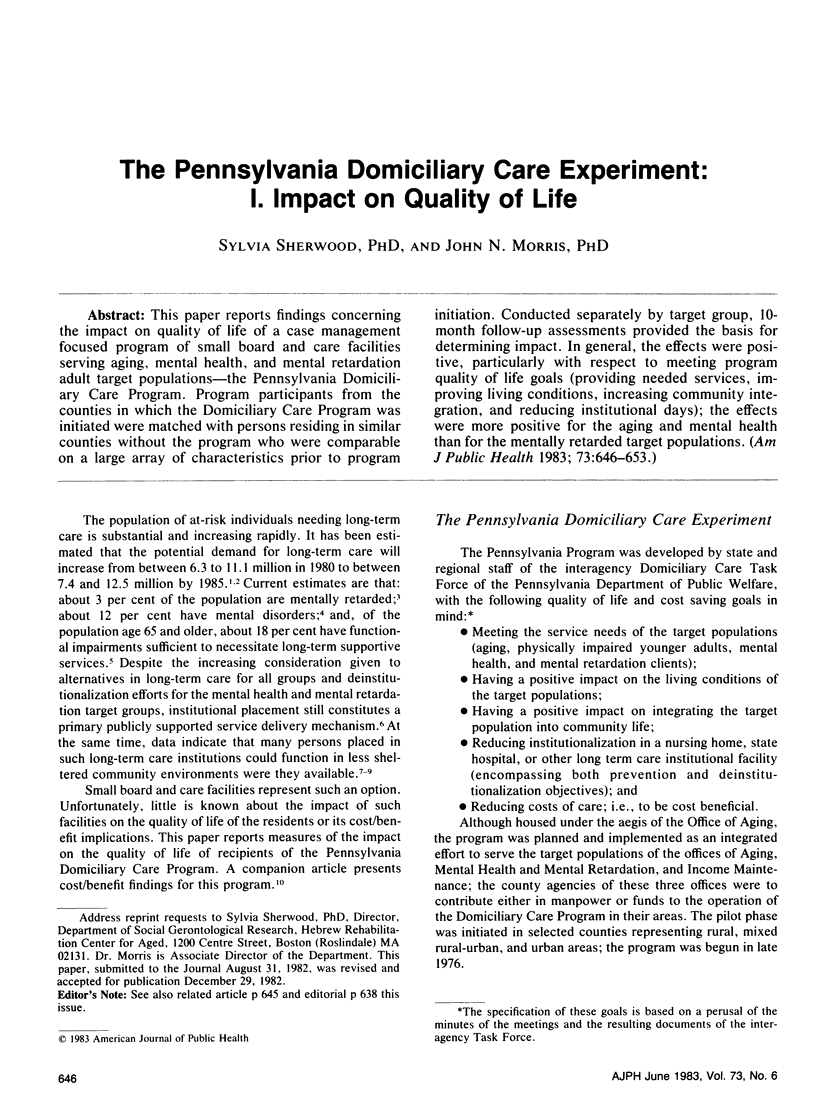
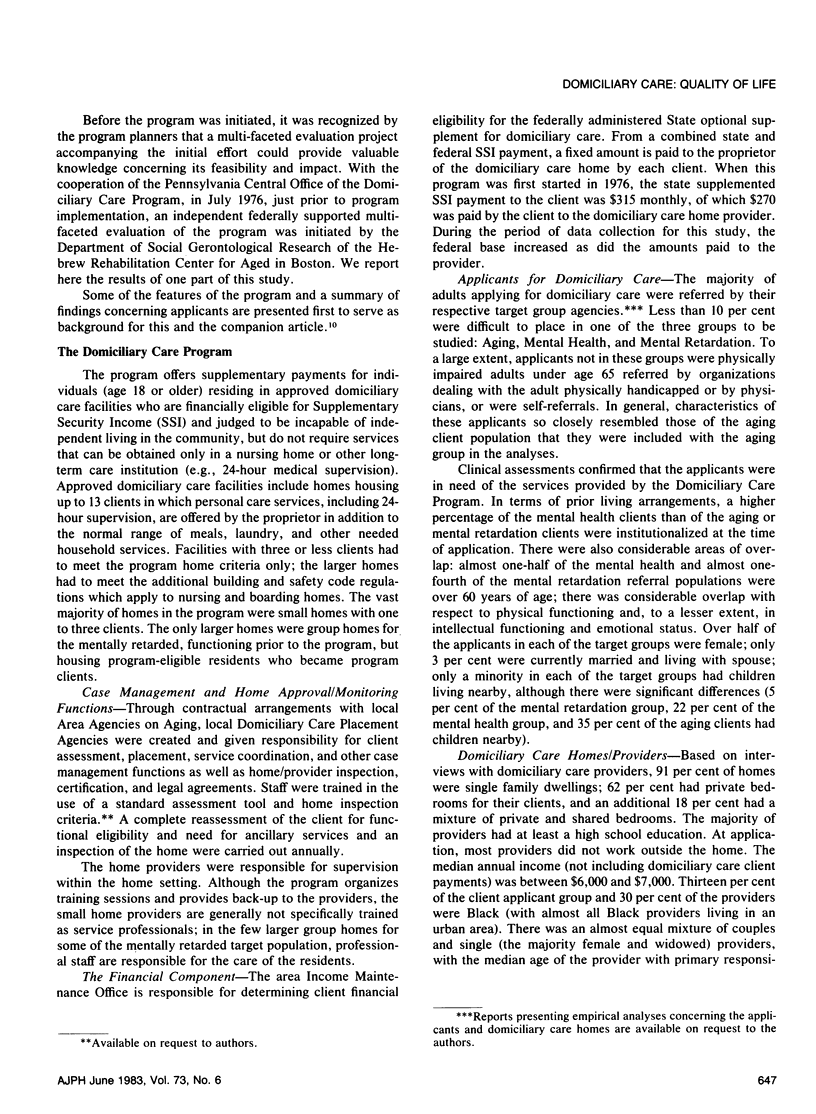
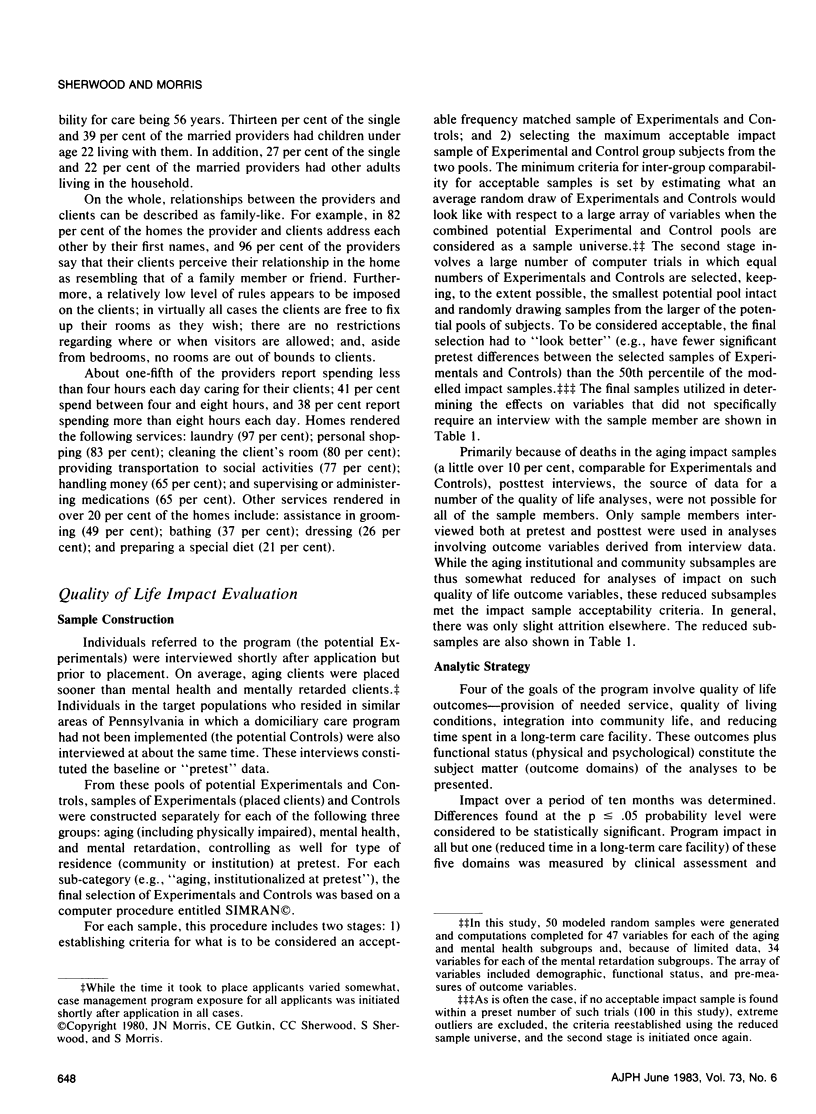
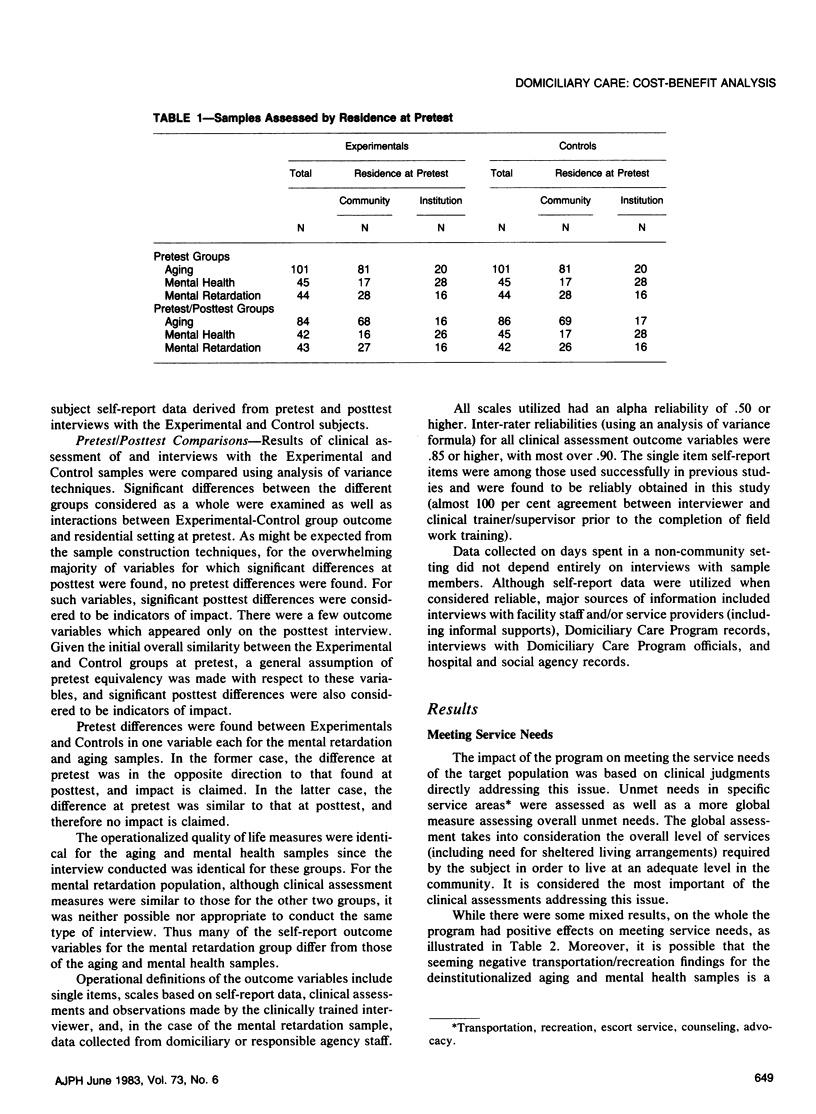
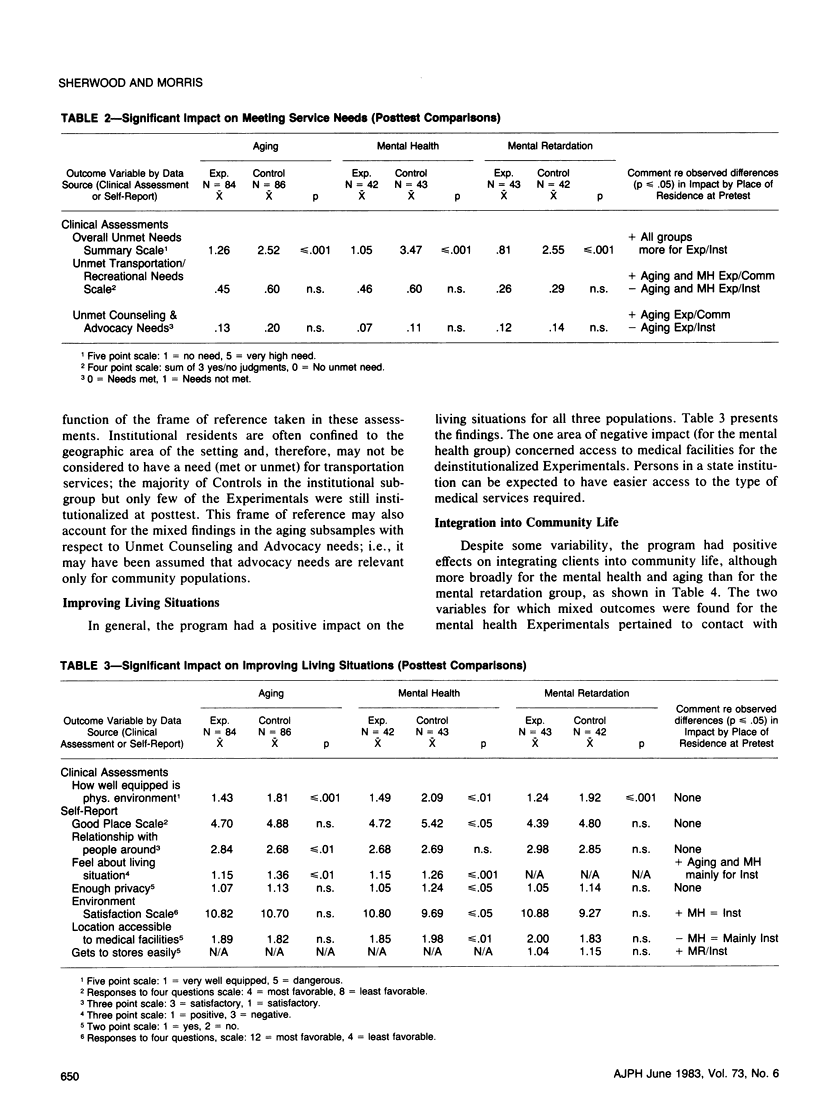
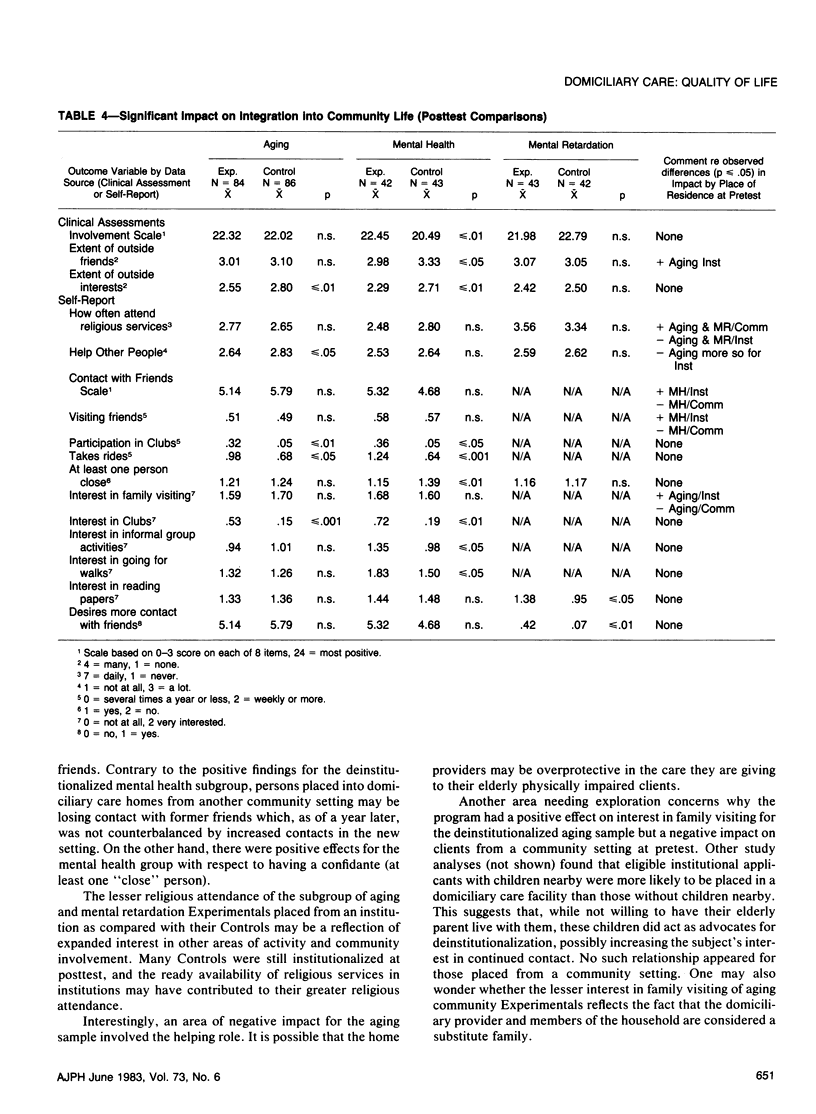


Images in this article
Selected References
These references are in PubMed. This may not be the complete list of references from this article.
- Kahn K. A., Hines W., Woodson A. S., Burkham-Armstrong G. A multidisciplinary approach to assessing the quality of care in long-term care facilities. Gerontologist. 1977 Feb;17(1):61–65. doi: 10.1093/geront/17.1.61. [DOI] [PubMed] [Google Scholar]
- Ruchlin H. S., Morris J. N. Pennsylvania's domiciliary care experiment: II. Cost-benefit implications. Am J Public Health. 1983 Jun;73(6):654–660. doi: 10.2105/ajph.73.6.654. [DOI] [PMC free article] [PubMed] [Google Scholar]
- Shanas E. Measuring the home health needs of the aged in five countries. J Gerontol. 1971 Jan;26(1):37–40. doi: 10.1093/geronj/26.1.37. [DOI] [PubMed] [Google Scholar]




